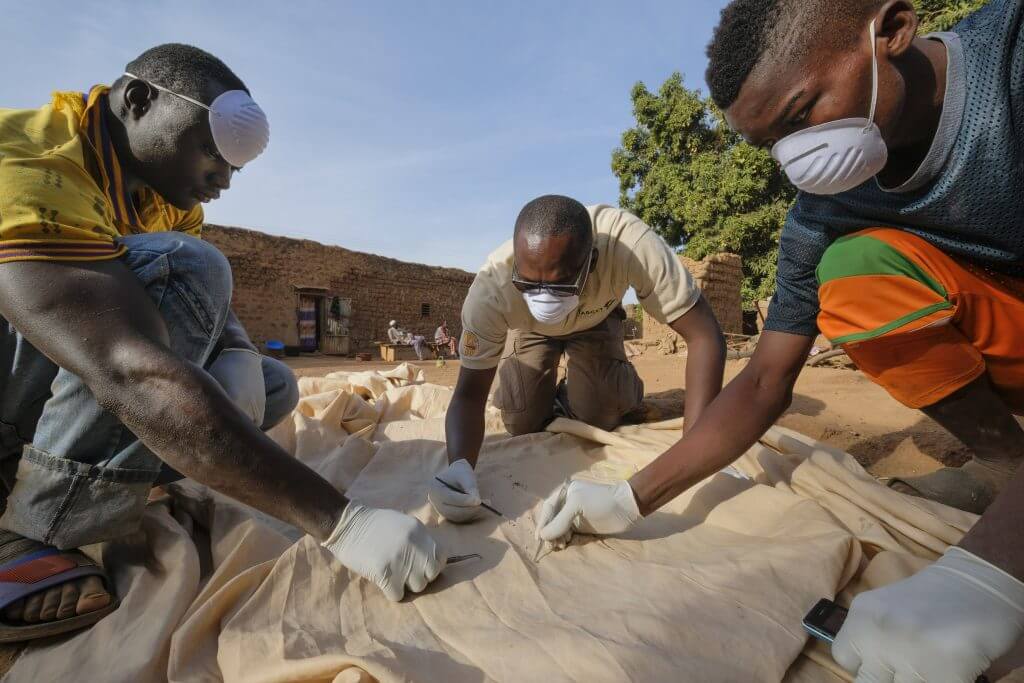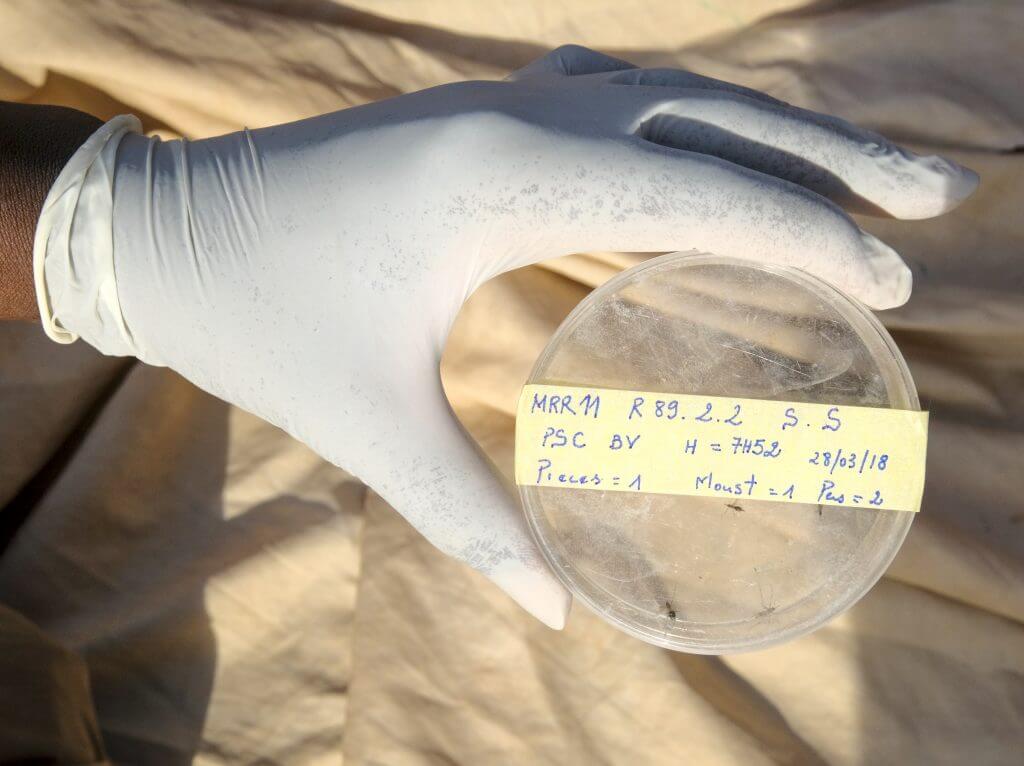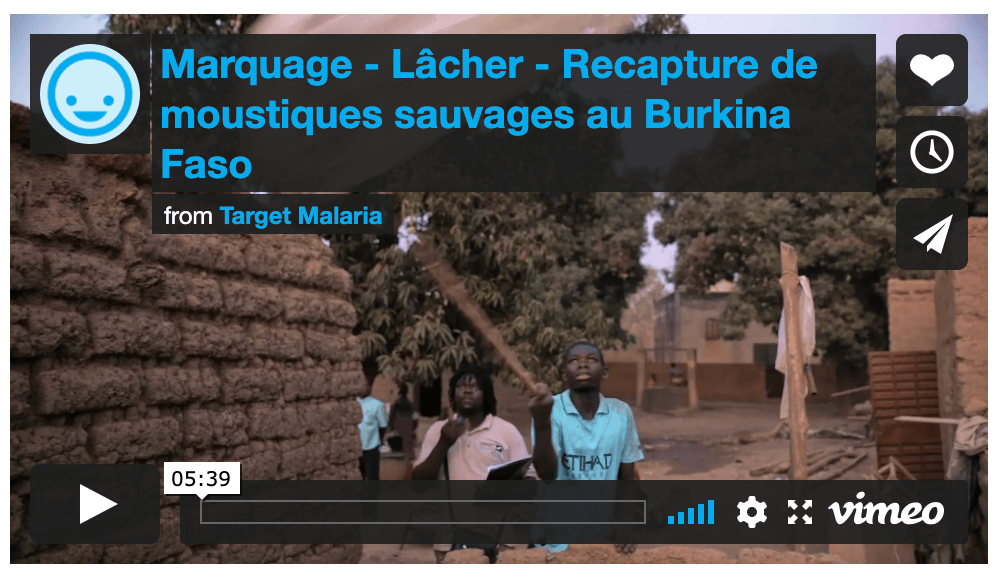Fighting malaria in the field through entomology

Malaria entomology is the study of the biology and ecology of the mosquitoes that transmit malaria. For a project like Target Malaria, which aims to combat the disease by targeting its vectors, understanding their dynamics is crucial. Entomological research allows us to collect critical information on the malaria-transmitting mosquito which will enable our researchers to design, as well as implement, an effective vector control strategy.
I was first drawn to entomological studies at a young age, when I had the opportunity to observe my father collecting and identifying insects in his spare time. Growing up, I felt the need to translate my fascination for the natural world into work that not only focused on the insects themselves, but also on their impact on human health. This is how I started researching the malaria mosquito.

Today, as Field Entomology Technical Coordinator for Target Malaria, I spend a lot of time carrying out field work in Africa. I work with our teams in Cape Verde, Burkina Faso, Ghana, Mali, and Uganda to advise and support field entomology research projects.
The teams collect information on the sibling species of Anopheles gambiae, which are the main malaria vectors in Africa. Our aim is to understand where these species live and breed, how far they travel and where they bite people. Our researchers gather this information through what we call “baseline studies” which are conducted in different locations. Data is collected on the mosquitoes’ population dynamics in relation to seasonality and their natural habitats.
One of the techniques we use are Mark, Release and Recapture studies. In close collaboration with participating communities who often take part in the experience, our field entomologists rear and mark male mosquitoes with coloured dyes. The mosquitoes are released into the environment before being recaptured over the following days. The captured individuals are then analysed in order to estimate how many of them survive in the wild, for how long and how they disperse. This technique also allows us to monitor and improve our rearing methods.
The knowledge gathered in the field is used to inform the project’s stepwise approach towards the development of genetically modified mosquitoes. The information accrued is vital in order to plan ahead, manage risks and expectations, ensure that research meets adequate standards and to design further studies ahead of mosquito releases. Last year, the project proceeded to its first release of non gene drive genetically modified mosquitoes in Bana, Burkina Faso. This release was the first of its kind to take place in Africa and a determining milestone following 7 years of work at the project site.
Entomological work in the field follows different trajectories in the African countries where research is carried out. The diversity of environments these countries exhibit represents both a challenge and a resource. Distinct environmental settings translate into different patterns of mosquito behaviour and malaria transmission; this means entomological research must be adapted and can at times be difficult to coordinate. At the same time, regional specificities allow researchers to collect a wealth of information that can inform the design of tailored approaches to vector control. There is something to be learned in each setting and it is important to be aware of these differences if we are to fight the disease effectively.
In 2021, entomological research in each country will be evolving:
- In Burkina Faso, where the non gene drive sterile male phase of the project has just been successfully completed, work will be focused on moving on to the next stage of our phased development pathway, which involves the contained study of non gene drive male bias mosquitoes.
- In Ghana, the project will continue research into developing rearing, transport and release protocols that are tailored to the African malaria mosquito: teams on the ground will be focusing on improving current rearing techniques and the quality of males for mosquito releases.
- In Mali, the results of containment of sterile males will be shared with stakeholders and we are completing key entomological studies.
- In Uganda, entomological research on the small mosquito populations which inhabit islands in Lake Victoria will continue. A new study is in the pipeline, in collaboration with the University of Notre Dame, US, to develop a novel approach for inferring mosquito population size through genetic analysis.
- In Cape Verde, the team will be working on devising and testing methods that will allow us to describe very small and elusive outdoor-biting mosquito populations. Repeated Indoor Residual Spraying campaigns carried out over the past decades on the islands affected by malaria have caused local mosquitoes to evolve and change their behaviour to avoid indoor settings.

Entomological studies that are well planned and perfectly executed are key to accurately describe the behaviour and prevalence of malaria-transmitting mosquitoes. The research carried out by our teams is fundamental to achieve Target Malaria’s end goal of producing safe and efficient novel tools to reduce malaria transmission. We hope it will also be useful to the broader malaria community working towards the development of more tailored and effective vector control strategies.

